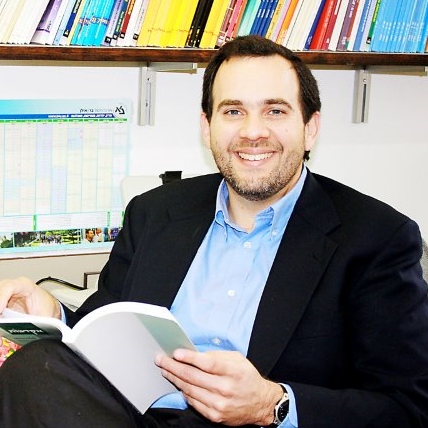
News

Strengthen communal bonds, says Rav Ferziger
JORDAN MOSHE
“Just because one is not enthusiastic about their religious Judaism, does not mean that one doesn’t cherish Jewish values, values which are often expressed though secular means such as morality, Zionism and politics,” says Ferziger.
He is here at the invitation of the Academy of Jewish Thought and Learning to participate in its education symposium this week.
“The standard litmus test of refusal to buy into the faith as a whole as being a true indication of one’s faith is not desirable, but is a barrier to true engagement. We need to build the spaces in which people choose to involve themselves not as a tool to getting them to shul, but in order to invest in them as people and cherish their worth as Jews.”
A social historian and academic, Ferziger focuses on Jewish religious movements, religious leadership and religious responses to secularisation and assimilation in contemporary North America, Europe and Israel.
Ferziger holds the Samson Raphael Hirsch Chair for Research of the Torah with Derekh Eretz Movement in the Israel and Golda Koschitzky Department of Jewish History and Contemporary Jewry at Bar-Ilan University.
Born in Riverdale, New York, he received his BA, MA and rabbinical ordination from Yeshiva University and his PhD summa cum laude from Bar-Ilan University. He and his wife moved to Israel in 1987.
Ferziger arrived in South Africa two weeks ago and is impressed.
“South Africa’s Jewish community boasts a spectrum of people, and many seem eager and willing to engage in matters important to their Judaism. The spaces afforded by academics for non-sectoral involvement are heathy and encourage people to engage.
“I’ve found increasingly that Jews here appreciate the complexities of today’s religious life, and they don’t want to simplify or water down any important subjects or religious conversations. It certainly is refreshing to encounter a polyvocal space such as the Academy in which different approaches can be discussed.”
An informed thinker in matters of Jewish assimilation and religious sectarianism, Ferziger strongly believes that every Jew finds their own way to connect with their faith.
“Development in terms of religiosity is different for every individual, and therefore each one has to find a way to approach their religion.
“We learn from the various religious obstacles which confront us on a daily basis, finding ways to overcome them through our different approaches.”
Ferziger says he want to offer people different perspectives on Torah and Jewish life, refreshing their own views and helping them navigate the complexities of building families and communities in 2018.
“Israel may be the central location for Jews, but the role played by the Diaspora community is one that cannot be overlooked, and the value of the life of a Jew in South Africa is important and needs to be understood,” he says.
“We need to think out of the box where Judaism is concerned,” he says. We need to address the new constituencies in our midst and find ways to move forward with them.
“Post-apartheid South Africa is complex. Twenty-four years is a very short time, and few people realise this. In the last 20 years, the number of Jews in the country has gone from 120 000 to 60 000. While the number is still fluid, it seems to have stabilised.
“People need to balance their visceral sense that something can change at any moment with an appreciation for the growing stability and plan for the future based on the current reality.
“Community life is always dynamic, but some people see this as dangerous and will consider strategising only when matters are on a complete even keel.
“These times are ones in which great things can happen. These are moments when people step up and bring forward ideas that would not ordinarily take root. The Lubavitcher Rebbe and Shlomo Carlebach chose the height of the hippie movement to initiate novel approaches, and flourished.”
At the same time, he warns, one needs to be realistic and cautious, especially here.
“Assimilation is a real threat and it happens everywhere. When stigmas about Jews fell out of favour in the USA, Jews became accepted in what had been a more closed society. They saw this as a triumph, and rightly so.
“However, what followed was a push-pull interaction between their desire to maintain a Jewish identity and to be accepted by society. In contemporary South Africa, diversity is celebrated constantly.
“This needs to be taken into account when addressing Jewish identity, and it needs to be recognised and addressed appropriately.”
Ferziger maintains that whether one likes it or not, the shul does not appeal to all Jews, especially many young ones.
“Alternative corridors of engagement need to be developed that do not force people into structures which they find alienating. The value of a true connection is incalculable, and it needs to be made appropriately.
“A space for engagement which appeals to people and neither intimidates nor alienates them is what is needed. This is not a simple task, but is crucial to cultivating Jewish involvement among key sectors pf contemporary South African Jewry.”




